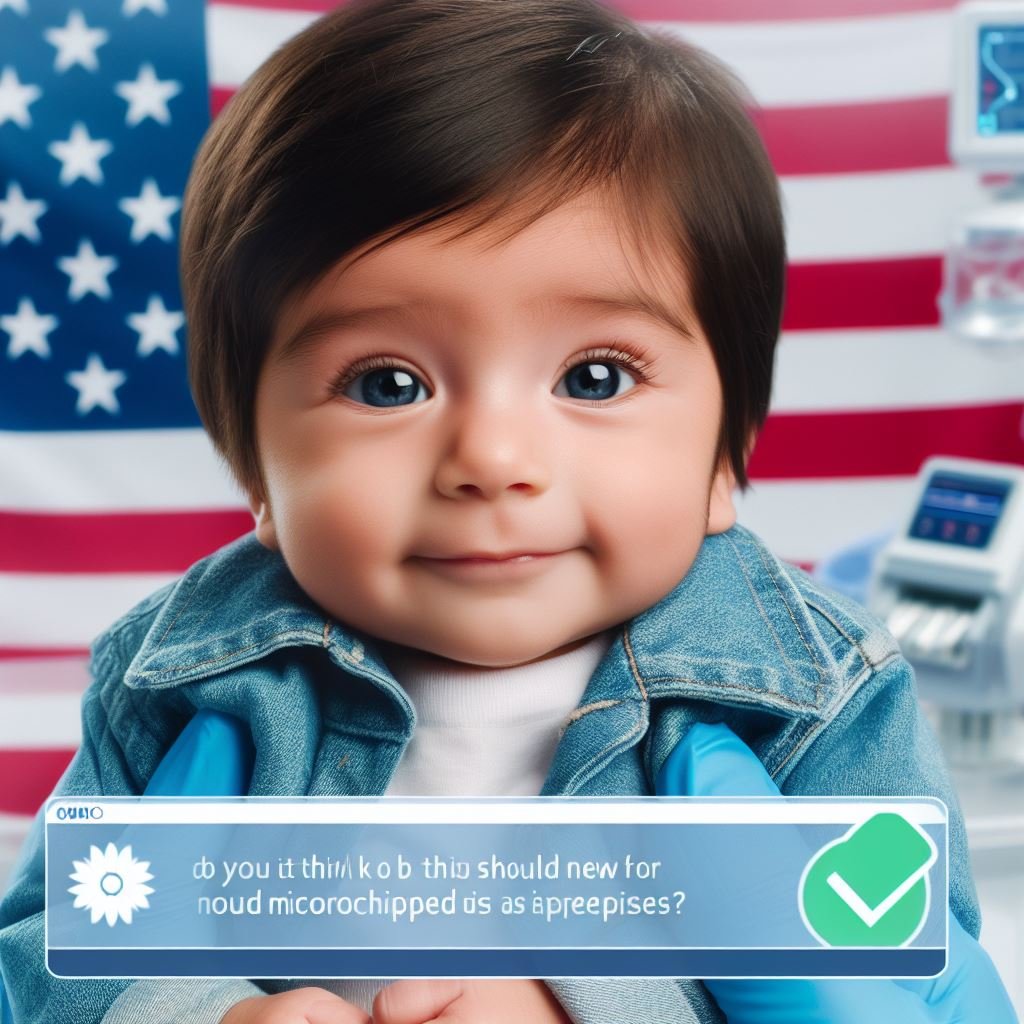Do You Think That Newborn Babies Should Be Micro Chipped in the US for Safety Purposes
According to recent studies, over 400,000 infants go missing each year in the United States, leading to increased concerns about the safety of newborns.
In an effort to address this issue, the idea of microchipping newborn babies for safety purposes has gained significant attention.
This article explores the potential benefits of such a measure, while also examining the concerns surrounding privacy and ethics.
By weighing the advantages and disadvantages, we aim to foster a thoughtful discussion about the delicate balance between personal freedoms and infant safety.
Key Takeaways
- Microchipping newborn babies in the US can provide increased security and peace of mind for parents and caregivers.
- Privacy and ethical concerns regarding invasion of privacy, data security breaches, bodily autonomy, and consent need to be carefully considered before implementing microchipping.
- Quick identification and tracking methods are important for enhancing newborn safety, but it is crucial to balance safety and privacy considerations.
- Potential abuses and risks of microchipping newborns include violation of privacy rights, unauthorized access to personal information, and concerns about misuse of data and tracking without consent.
The Potential Benefits of Microchipping Newborn Babies
When considering the potential benefits of microchipping newborn babies, it is essential to explore the increased security and peace of mind that such technology could provide for parents and caregivers.
Microchipping newborns can significantly enhance safety measures by ensuring that infants can be easily located in case of an emergency or abduction. This technology can act as a vital tool in preventing and addressing instances of child trafficking, which is a growing concern worldwide.
Concerns About Privacy and Ethics in Microchipping Infants
However, some individuals and organizations raise legitimate concerns about the privacy and ethical implications of microchipping infants in the United States.
While the implementation of microchips in newborn babies may offer potential benefits for safety purposes, it is important to address the following concerns:
- Invasion of privacy: Microchipping infants could lead to a violation of their right to privacy, as it would involve constant tracking and monitoring of their movements.
- Data security: There is a risk of hackers gaining access to the personal data stored in the microchips, potentially compromising the safety and wellbeing of the infants.
- Ethical considerations: Implanting microchips in infants raises questions about bodily autonomy and consent, as they are unable to provide informed consent for such an invasive procedure.
Considering these concerns, it is crucial to carefully weigh the potential benefits against the possible infringement on privacy and ethical considerations before implementing microchipping in newborn babies.
Enhancing Newborn Safety: Quick Identification and Tracking
For the purpose of enhancing newborn safety, it is important to explore methods that allow for quick identification and tracking without compromising privacy or ethical considerations.
When it comes to the safety of newborns, time is of the essence. Quick identification and tracking methods can be crucial in ensuring their well-being. However, it is equally important to strike a balance between safety and privacy. Newborns deserve to be protected, but their rights and dignity must also be respected.
It is essential to develop technologies that prioritize the safety of infants while upholding ethical standards. These methods should be designed with the utmost care, ensuring that they do not infringe upon personal freedoms or expose sensitive information.
Potential Abuses and Risks of Microchipping Newborns
Some potential abuses and risks of microchipping newborns include the violation of privacy rights and the potential for unauthorized access to personal information. This technology raises concerns about the misuse of data and the potential for tracking individuals without their consent.
The following are some specific risks and abuses associated with microchipping newborns:
- Privacy infringement: Microchips could potentially be used to track individuals’ movements without their knowledge or consent, violating their privacy rights.
- Data security breaches: There is a risk of unauthorized access to personal information stored in the microchip, which could lead to identity theft or misuse of sensitive data.
- Ethical concerns: There are ethical questions surrounding the potential for abuse of power and control that may arise from the widespread use of microchips in newborns.
Considering these risks and abuses, it is crucial to carefully weigh the potential benefits against the possible harm before implementing such technology.
Balancing Personal Freedoms With Infant Safety: Exploring the Debate
While infant safety is of utmost importance, it is necessary to carefully consider the potential impact on personal freedoms when debating the implementation of microchipping newborn babies in the US.
Balancing the need for infant safety with individual rights is a complex issue that requires thoughtful consideration.
On one hand, microchipping could provide valuable information in case of emergencies, helping parents locate their child quickly. It could also potentially deter child abductions and improve overall security in hospitals and nurseries.
However, on the other hand, concerns have been raised about the violation of personal privacy and the potential misuse of the technology.
It is essential to strike a balance between ensuring the safety of infants and protecting personal freedoms, as both are fundamental aspects of a just and equitable society.
Frequently Asked Questions
How Does Microchipping Newborn Babies Work?
Microchipping newborn babies involves implanting a small electronic device under the skin. This device contains a unique identification number that can be scanned by authorized individuals. It is considered a safety measure to track and locate infants if they go missing.
Are There Any Health Risks Associated With Microchipping Infants?
There are potential health risks associated with microchipping infants, including the risk of infection, migration of the chip, and possible interference with medical devices. It is crucial to thoroughly consider these risks before implementing such a practice.
What Are the Potential Long-Term Effects of Microchipping on a Child’s Development?
The potential long-term effects of microchipping on a child’s development are a subject of concern. It is crucial to consider the implications on privacy, autonomy, and psychological well-being before implementing such measures for safety purposes.
Can the Microchip Be Easily Removed or Deactivated if Desired?
The ability to easily remove or deactivate microchips is an important consideration in the discussion of whether newborn babies should be chipped for safety purposes. It ensures individuals have control over their own bodies and privacy.
What Measures Are in Place to Ensure the Security and Protection of the Information Collected Through Microchips?
To ensure the security and protection of information collected through microchips for newborn babies, robust measures must be in place. These include encryption, strict access controls, regular audits, and compliance with data protection regulations.
Conclusion
In conclusion, the debate surrounding the microchipping of newborn babies in the US for safety purposes is complex.
While there are potential benefits such as quick identification and tracking, concerns about privacy and ethics cannot be ignored.
Striking a balance between personal freedoms and infant safety is crucial.
The hyperbole of this discussion highlights the need for careful consideration and thorough examination of the potential risks and benefits before making any decisions.


